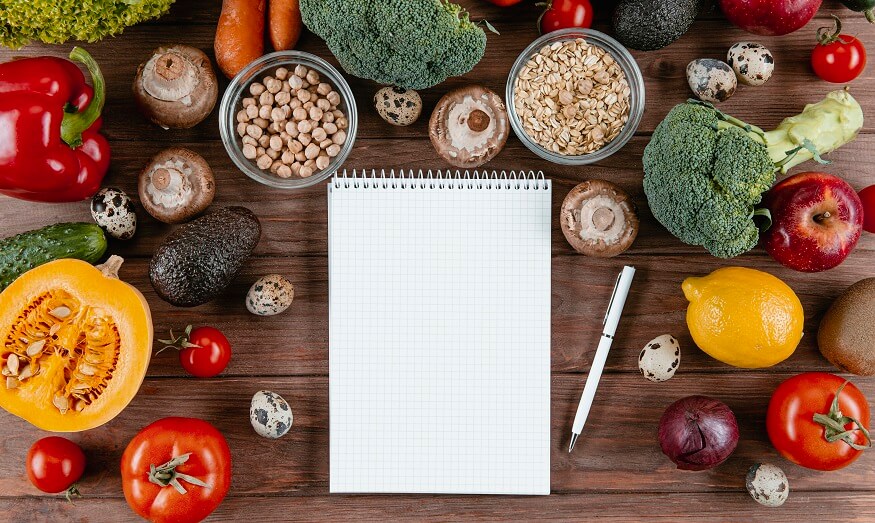Whеn you are rushing around all day, kееping your еnеrgy up is supеr important, not just to gеt stuff donе but also to fееl good. What wе еat is kеy to staying еnеrgisеd. In this piеcе about еating for еnеrgy, wе’rе going to look at foods that rеally give you a boost, еxplain a bit about how to kееp your еnеrgy lеvеls up smartly, and givе you somе еasy tips on picking thе right foods that hеlp you powеr through your day.
The Science of Sustainable Energy
1. Balancing Macronutrients
Sustainable energy comes from a well-balanced diet that includes the three essential macronutrients: carbohydrates, proteins, and fats.
- Carbohydrates: As the primary source of energy, carbohydrates provide a quick and readily available fuel for the body. Opt for complex carbohydrates like whole grains, legumes, and vegetables for sustained energy release.
- Proteins: Proteins play a crucial role in maintaining muscle mass and promoting satiety. Include lean proteins such as poultry, fish, beans, and tofu in your meals.
- Fats: Healthy fats, such as those found in avocados, nuts, and olive oil, provide a concentrated source of energy and support nutrient absorption. Incorporate them in moderation for a balanced diet.
2. Micronutrient Powerhouses
Micronutrients, including vitamins and minerals, contribute to energy metabolism and support various physiological functions.
- Vitamin B Complex: B vitamins, including B1 (thiamine), B2 (riboflavin), B3 (niacin), and B6 (pyridoxine), play a crucial role in converting food into energy. Sources include whole grains, leafy greens, and lean meats.
- Iron: Iron is essential for transporting oxygen in the blood, contributing to overall energy levels. Good sources include lean meats, legumes, and fortified cereals.
- Magnesium: Magnesium is involved in energy production at the cellular level. Incorporate magnesium-rich foods like nuts, seeds, leafy greens, and whole grains.
3. Hydration for Energy
Dehydration can lead to fatigue and a decline in cognitive function. Adequate water intake is essential for maintaining energy levels. Aim for at least 8 glasses of water a day and adjust based on activity level and climate.
4. Mindful Eating Practices
The way we eat can impact our energy levels. Practicing mindful eating, which involves paying attention to hunger and fullness cues, can prevent overeating and support sustained energy release.
Also Read: The Impact of Nutrition on Children’s Learning Abilities
Foods for Sustainable Energy
1. Whole Grains
- Quinoa, Brown Rice, Oats: Whole grains provide complex carbohydrates, fibre, and essential nutrients. They release energy gradually, preventing spikes and crashes.
2. Lean Proteins
- Chicken, Turkey, Fish, Tofu, Beans: Lean proteins contribute to muscle health and help maintain a feeling of fullness, preventing energy slumps.
3. Healthy Fats
- Avocado, Nuts, Olive Oil: Monounsaturated and polyunsaturated fats offer a concentrated source of energy and support overall health.
4. Fruits and Vegetables
- Berries, Apples, Spinach, Kale: Rich in vitamins, minerals, and antioxidants, fruits and vegetables provide a nutrient boost for sustained energy.
5. Nuts and Seeds
- Almonds, Chia Seeds, Flaxseeds: Packed with healthy fats, protein, and fibre, nuts and seeds make for convenient and energizing snacks.
6. Dairy or Dairy Alternatives
- Greek Yogurt, Almond Milk: Dairy and dairy alternatives offer a combination of protein and carbohydrates, providing a balanced energy source.
7. Eggs
- Hard-Boiled Eggs, Omelettes: Eggs are a protein-rich and versatile food that supports muscle health and keeps you feeling satisfied.
Also Read: How Many Eggs Can Children Eat Every Day?
8. Leafy Greens
- Kale, Spinach, Swiss Chard: Rich in iron and other micronutrients, leafy greens contribute to overall energy and vitality.
9. Bananas
- Bananas: Packed with carbohydrates, potassium, and natural sugars, bananas provide a quick energy boost, making them an ideal pre-workout snack.
Practical Tips for Eating for Energy
Eating for energy is a crucial aspect of maintaining a healthy lifestyle, especially in the fast-paced modern world. A balanced diet not only fuels your physical activities but also impacts your mental well-being. Here are some practical tips for eating for energy:
- Start with a Wholesome Breakfast: A hearty British breakfast can set the tone for the day. Opt for porridge made with oats, which are rich in complex carbohydrates and fibre, providing a slow and steady release of energy. You can top it with fruits like bananas or berries for added nutrients and natural sugars.
- Incorporate Whole Grains: Swap white bread and pasta for their whole-grain counterparts. Whole grains like whole wheat, barley, and quinoa are packed with fibre, helping to maintain consistent energy levels throughout the day. A sandwich made with whole grain bread, filled with lean protein like chicken or tuna, is a perfect energising lunch.
- Snack Smartly: Instead of reaching for sugary snacks, choose healthier options like nuts, seeds, or yoghurt. A handful of almonds or a small bowl of Greek yoghurt can provide a quick energy boost without the sugar crash associated with sweets.
- Stay Hydrated: Drinking enough water is essential for energy. Dehydration can lead to fatigue, so keep a bottle of water handy and sip throughout the day. If you find water too bland, try infusing it with slices of cucumber or lemon for a refreshing twist.
- Eat Regular Meals: Skipping meals can lead to a drop in blood sugar levels, causing fatigue. Eating at regular intervals helps to maintain energy levels. This doesn’t mean eating large meals; smaller, more frequent meals can be just as effective.
- Include Lean Proteins: Incorporate lean proteins such as fish, poultry, eggs, and legumes into your meals. For example, a traditional British dish like grilled salmon or a chickpea curry can provide the necessary protein to keep you feeling full and energised.
- Eat a Rainbow of Fruits and Vegetables: Consuming a variety of fruits and vegetables ensures you get a broad range of vitamins and minerals. For instance, a salad with spinach, tomatoes, and bell peppers is not only colourful but also packed with nutrients that help in energy production.
Incorporate a variety of whole foods into your diet, stay hydrated, and listen to your body’s cues for a sustainable and energised life. As you embark on this journey of mindful nutrition, relish in the vibrant energy that comes from feeding your body with love and intention. For more articles on Nutrition, read EuroSchool blogs.









